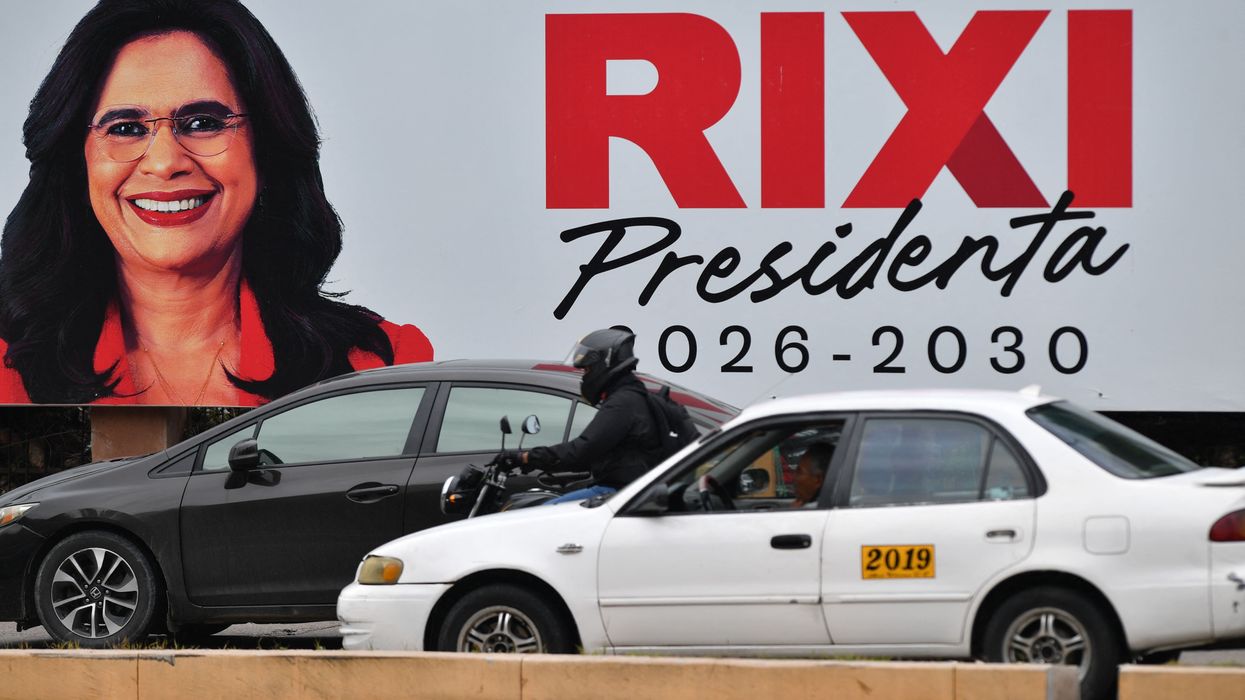He accused Asfura's opponents—former finance and defense minister Rixi Moncada of the left-wing Liberty and Refoundation (Libre) Party, which is now in power, and sportscaster Salvador Nasralla of the centrist Liberal Party—of being communists and said Nasralla is running as a spoiler in order to split the vote and weaken Asfura. He added that a loss for the right-wing candidate would allow Venezuelan President Nicolás Maduro "and his Narcoterrorists [to] take over another country like they have taken over Cuba, Nicaragua, and Venezuela."
The president also wrote on his social media platform, Truth Social, that "if [Asfura] doesn't win, the US will not be throwing good money after bad," repeating a comment he made during New York City's mayoral election in which he urged voters to reject progressive candidate Zohran Mamdani or risk losing federal aid for the city. Trump also offered Argentina a $40 billion bailout if voters elected his ally, Javier Milei, earlier this year.
Under President Xiomara Castro, the Libre Party's government has invested in hospitals and education, and has made strides in halting the privatization of the country's electricity system, Drop Site News reported. The poverty rate has also been reduced by about 13% since Castro took office in 2021, although, as the outlet reported, some rights advocates have criticized Castro's government for keeping "many of her predecessor’s militarized policies in place, despite her commitment to implement a more community-minded strategy."
Trump added in his social media post that he was issuing a pardon to former Honduran President Juan Orlando Hernández, who represented the National Party and is currently serving a 45-year prison sentence in the US after being convicted of working with drug traffickers who paid bribes to ensure more than 400 tons of cocaine were sent to the US. The pardon was announced as Trump continues his threats against Venezuela, which he has accused of trafficking drugs to the US.
CPC Deputy Chair Ilhan Omar (D-Minn.) and Whip Jesús “Chuy” García (D-Ill.) called Trump's "smearing" of Asfura's opponents "completely unacceptable," and noted that the president has been joined by other congressional Republicans in making "wild, unsubstantiated allegations" regarding Honduras' election—including Rep. María Elvira Salazar (R-Fla.), who voiced "support for a military coup."
Salazar said recently that "16 years ago, the military saved its country from communism and today, they need to do the same thing," referring to the US-backed overthrow of democratically-elected President Manuel Zelaya.
“These Cold War-era threats and blatant interventions create hostile conditions for free and fair elections and must stop immediately," said Omar and García. "We also cannot tolerate premature declarations by prominent US politicians regarding the election results before ballots are fully counted. Attempts to delegitimize the vote based on who wins could be disastrous in light of the harmful history of US interference in modern Honduran politics."
The two progressive leaders were echoing concerns brought up by Honduran Vice Foreign Minister Gerardo Torres, who spoke at a gathering of left-wing leaders on Thursday in Tegucigalpa.
Torres warned that the Electoral Council could claim Nasry is winning "with an irreversible trend" before the actual winner of the wide-open race is clear on Sunday.
"Even Trump could congratulate him—and that’s when real trouble will erupt in this country,” said Torres.
The chaos that could result could lead election officials to "nullify the elections and hold new ones in six months, leaving Libre weakened and allowing the right to win," reported El País. Torres posited that this is the National Party's "strategy."
“The right wing cannot win on Sunday; that needs to be clear and repeated ad nauseam,” Torres said, urging advocates to promote Moncada's candidacy on social media and help mobilize voters to get to the polls early.
Omar and García noted that after Honduras' 2017 election, the Trump administration endorsed Hernández's reelection "despite evidence of fraud and the killing by his security forces of Hondurans who protested the results."
More than 20 people were killed in the aftermath of the disputed 2017 election
The two progressive leaders said that "Sunday’s elections are taking place at a critical moment, as the country aims to elect and transfer political power to a new leader for the first time outside of the context of the repressive post-coup regimes that persisted from 2009 to 2021."
"At a time of global democratic fragility, we must move beyond US bullying and political interference in Honduras’s sovereign affairs. We need a relationship based on mutual respect, including respect for the will of Honduran voters," said Omar and García.
Torres expressed hope that Trump's backing of Asfura will have the opposite effect that the US president intended, saying Trump's comments on social media were "a blow to the right; it hurts one of their candidates."
“If there was anyone who didn’t know there were elections in Honduras this Sunday, now everyone knows,” said Torres. “There are even people who went to look at a map to see where Honduras is and find out who Rixi Moncada is... It puts us in an important position, which creates a wonderful scenario, because Rixi’s victory will be more famous and important. We have no doubt about her victory."
Torres added that many conservative voters in Honduras are likely to reject the party formerly led by Hernández.
"These are right-wing people who opposed the narcostate, who stood with us in 2015 against [Hernández's] embezzlement of social security, and who know what those criminals are,” he said, referring to previous governments. “Trump can tweet all day and those people aren’t going to vote for the return of the conservatives."
José Mario López of the Jesuit Reflection, Research, and Communication Team in Honduras also told Drop Site News that the "red scare" tactics that the National and Liberal parties have joined Trump in using in the final weeks of the election are likely to have some sway with older people, but are "not expected to impact younger voters."
“It’s a discourse that doesn’t really land, in my view,” López told the outlet. “I think what can move votes is the economic issue, because historically one of the main problems identified in public opinion polls is unemployment and lack of economic opportunities.”



